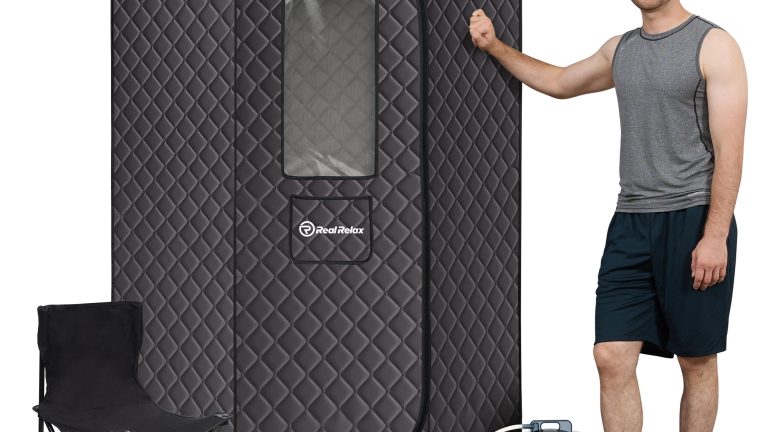2. What are the benefits of using an Indoor Sauna?
3. How does an Indoor Sauna work?
4. How often should I use an Indoor Sauna?
5. How long should a session in an Indoor Sauna last?
6. Can I use an Indoor Sauna every day?
7. Are Indoor Saunas energy-efficient?
8. How much space do I need for an Indoor Sauna?
9. Can I install an Indoor Sauna in a small space?
10. How do I maintain an Indoor Sauna?
11. What should I wear in an Indoor Sauna?
12. Can I use an Indoor Sauna if I have health issues?
13. Can children use an Indoor Sauna?
14. Can I install an Indoor Sauna myself?
15. How much does an Indoor Sauna cost?
16. What type of sauna is best for a home?
17. Are there any risks associated with Indoor Saunas?
18. Can I bring electronics into the Indoor Sauna?
19. Can I use essential oils in an Indoor Sauna?
20. Where can I buy an Indoor Sauna?
1. What is an Indoor Sauna?
An indoor sauna is a heated room used for relaxation and health benefits. It uses either traditional steam or infrared heat to promote sweating and relaxation.
2. What are the benefits of using an Indoor Sauna?
- Detoxification: Promotes sweating to flush out toxins.
- Stress Relief: Helps reduce tension and relax muscles.
- Improved Circulation: Boosts blood flow and heart rate.
- Skin Health: Opens pores, improving skin appearance.
- Pain Relief: Eases muscle and joint pain.
3. How does an Indoor Sauna work?
- Traditional Sauna: Uses heat from hot stones or steam to warm the air, which then heats the body.
- Infrared Sauna: Uses infrared light to directly heat the body at lower temperatures, offering a gentler experience.
4. How often should I use an Indoor Sauna?
For most people, 3 to 5 times per week is ideal. If you’re new to saunas, start with shorter sessions and gradually increase the frequency and duration as you get more comfortable.
5. How long should a session in an Indoor Sauna last?
A typical sauna session lasts between 15 to 30 minutes, but it depends on your tolerance. Beginners may want to start with 10–15 minutes and increase the time.
6. Can I use an Indoor Sauna every day?
Yes, daily use is safe for most healthy individuals. Just make sure to stay hydrated, and listen to your body. If you have any medical conditions, consult a doctor first.
7. Are Indoor Saunas energy-efficient?
Yes! Infrared saunas are generally more energy-efficient than traditional saunas, using less electricity due to lower operating temperatures.
8. How much space do I need for an Indoor Sauna?
Sauna sizes vary, with compact models fitting small spaces like bathrooms or bedrooms, while larger units may require extra room for installation.
9. Can I install an Indoor Sauna in a small space?
Yes, many indoor saunas are designed to fit into smaller spaces, such as bathrooms, bedrooms, or basements. Infrared saunas are particularly space-efficient.
10. How do I maintain an Indoor Sauna?
- Clean regularly: Wipe down surfaces after each session to prevent buildup.
- Proper ventilation: Ensure good airflow to avoid moisture accumulation.
- Follow manufacturer guidelines: For deeper cleaning and maintenance of heaters.
11. What should I wear in an Indoor Sauna?
Wear loose, breathable clothing, or you can use a towel for comfort. Avoid tight clothing or anything that restricts sweating.
12. Can I use an Indoor Sauna if I have health issues?
If you have heart disease, high blood pressure, or other serious conditions, always consult with a doctor before using a sauna. Pregnant women should also seek medical advice.
13. Can children use an Indoor Sauna?
Children may use a sauna with adult supervision and at lower temperatures, with sessions kept shorter. Always consult a pediatrician before allowing children to use it.
14. Can I install an Indoor Sauna myself?
Smaller, portable models can often be assembled by the user, but larger, built-in saunas may require professional installation. Always follow the manufacturer’s instructions.
15. How much does an Indoor Sauna cost?
Costs vary based on type and size. Infrared saunas generally range from $1,000 to $5,000, while traditional saunas may cost more, especially with custom features.
16. What type of sauna is best for a home?
- Infrared Saunas: Great for smaller spaces and lower temperatures.
- Traditional Saunas: Perfect for larger spaces and those who enjoy higher temperatures and steam.
17. Are there any risks associated with Indoor Saunas?
Saunas are generally safe but can cause dehydration if not hydrated properly. Avoid excessive heat exposure and limit your time inside if you feel uncomfortable.
18. Can I bring electronics into the Indoor Sauna?
It’s best to avoid bringing electronics inside as the heat and moisture may damage devices. Some saunas offer built-in entertainment options for safety.
19. Can I use essential oils in an Indoor Sauna?
Yes, many sauna users enjoy aromatherapy by adding essential oils to the sauna. Just ensure you are using a diffuser designed for sauna use to avoid damaging the wood.
20. Where can I buy an Indoor Sauna?
Indoor saunas are available through wellness retailers, online stores, or directly from sauna manufacturers. Always check reviews and ratings before purchasing.
